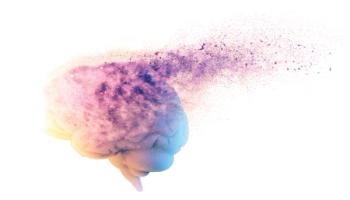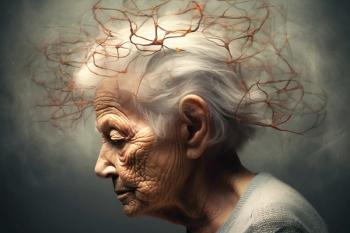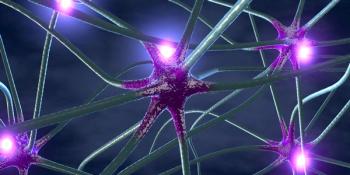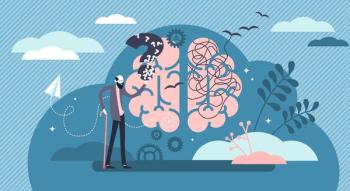
Available evidence from preclinical studies indicates that semaglutide shows promise for treating Alzheimer disease and Parkinson disease.

Dr Tampi is professor and chair of the Department of Psychiatry at Creighton University School of Medicine and Catholic Health Initiatives Health Behavioral Health Services. He is also an adjunct professor of psychiatry at Yale School of Medicine in New Haven, Connecticut, and a member of the Psychiatric Times editorial board.

Available evidence from preclinical studies indicates that semaglutide shows promise for treating Alzheimer disease and Parkinson disease.

One meta-analysis that included data from 6 placebo-controlled and 7 active-controlled studies using subcutaneous semaglutide found that when compared with placebo, subcutaneous semaglutide 0.5 mg and 1 mg reduced hemoglobin A1c (HbA1c) by 1.01% and 1.38%, respectively.

How efficacious is brexpiprazole as a treatment for agitation associated with Alzheimer disease?

OABD is a significant concern among older adults, characterized by unique presentations and comorbidities. Here's what you need to know.

Although psychiatric disorders are common among older adults, many of these individuals do not get the treatment they need. The Psychiatric Times Special Report on Geriatric Psychiatry discusses how we can improve outcomes for this patient population.


In this CME article, learn how to evaluate older adults who present with significant appetite and weight changes for the presence of an eating disorder.

What treatments are available for those with older age bipolar disorder?

Between 1980 and 1998, the relative frequency of late-onset bipolar disorder increased from 1% to 11%. How can you best assess for this condition?

What is the first thing you share with your patient when you are about to prescribe a new medication?

In this CME, evaluate the treatment options for depression among older adults.

In this CME article, learn about the best ways to assess depression in the geriatric population.

COVID-19 has prompted an unprecedented shift toward virtual psychiatric health care—but how do patients and providers really feel about it?


Secondary causes for psychosis are more common in older adults (65 years or older) than in younger patients. Here are 6 possible culprits.

Most psychotic disorders appear in adolescents or young adults, but some also occur during later life. Here's how to recognize and treat them.

Apathy occurs throughout the spectrum of neurocognitive disorders, but it is easy to mistake for other conditions, like depression. How can clinicians identify apathy, and treat it?

Available evidence indicates that there are a multitude of neuropsychiatric syndromes that occur after a stroke. Cognitive impairment occurs in approximately one-third of patients. These neuropsychiatric manifestations often impede the recovery of motor functioning, reduce social functioning, and decrease the overall quality of life.

The pandemic has made caring for geriatric patients more difficult, but a panel at the American Psychiatric Association Annual Meeting discusses the latest best practices.

In approximately half of patients with Huntington disease, symptoms of depression, irritability/aggression, executive dysfunction, psychosis, cognitive decline, and dementia present long before progressive motor symptoms.

Neuropsychiatric manifestations of Huntington disease can present decades before the motor symptoms become apparent, making the role of the psychiatrist all the more important.

Earn CME Credit by learning more about multiple sclerosis and how it affects patients.

Nearly half of the prescriptions for benzodiazepine among older adults are potentially inappropriate, so how best to do no harm?

Although normally associated with children, attention-deficit/hyperactivity disorder can also persist in adulthood, presenting challenges to both patients and clinicians.

Often misdiagnosed as other psychiatric disorders, FTD is the third most common type of dementia and the second most common among patients 65 years or younger. How to spot the signs.

Addiction among older adults is associated with worse medical outcomes and increased economic burden of care. The long-term use of psychoactive substances can result in adverse neurological outcomes even at therapeutic doses.

The development of specific diagnostic criteria that are applicable to older adults can aid in the accurate diagnosis of psychiatric disorders in late life.

Rajesh R. Tampi, MD, MS, DFAPA, provides guidance for frontline health professionals and caregivers to mitigate stress and burden.

Parkinson disease psychosis is associated with worsening quality of life, greater caregiver distress, higher rates of institutionalization, increased mortality, and greater health care costs. The authors explore medical, psychosocial, and psychological factors associated with PD psychosis.

BPSD is associated with worse outcomes for patients with dementia. Management is not standardized, but protocols generally involve the treatment of underlying symptoms followed by the use of nonpharmacological management techniques and evidence-based pharmacotherapy for refractory BPSD.